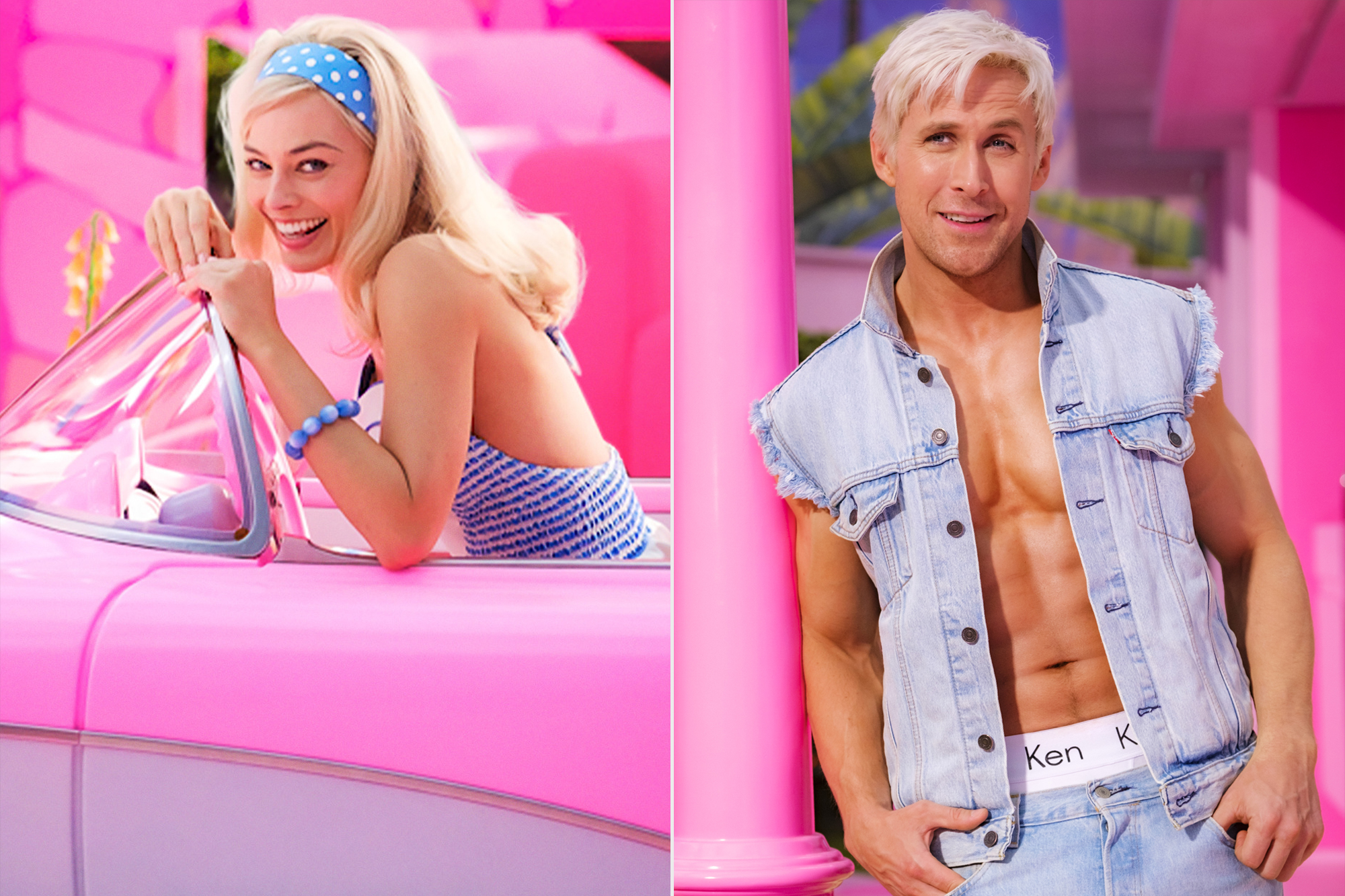By Caitríona Ní Chonaill
Think the new Barbie movie is for silly girls in pretty dresses? Think again. A cinema full of a pink-clad, cheering audience, laughing, and feeling as one at the depiction of the modern and Barbie world before them.
I honestly didn’t know what to expect when I walked into the theatre to see Barbie. On one hand, it could be a pink-and-plastic-life’s-fantastic romp, or a Gerwig soul-wrenching masterpiece that would have you laughing and crying with emotion in equal measure. Turns out it was both, and so much more besides.
We see Barbie land in the first five minutes of the film, as pristine and plastic as one could imagine. The attention to detail was extraordinary, with Margot Robbie’s physical acting making her portrayal of plastic perfection extremely believable. Even the fact that, as Barbie rises in the morning, her dress magically appears on her from her wardrobe, her cup of milk doesn’t have anything in it, and Barbie simply floats from the roof of her house to her car, because, as is mentioned by narrator Helen Mirren, nobody walks their Barbie down the stairs. We get to see all the Barbies and Kens (and Alan) of Barbieland in their natural habitat, with the dynamics clearly set out from the beginning. Barbies run everything in Barbieland – president, doctor, lawyer, space explorer, Nobel prize winner – whatever you can imagine, Barbie has achieved it. Kens, and men in general, are background characters, spawning the phrase and the movie’s tagline “She’s Barbie. He’s just Ken”.
But all is not perfect in Barbie land. Barbie (stereotypical Barbie, lest we get confused) wakes up one morning to find she now has morning breath, her milk has gone off, she falls from the roof of her house instead of floating, her feet have gone from tiptoe heel-ready to flat, and that she has cellulite and thoughts of death. This culminates in a visit to “Weird Barbie” (a doll who has been played with too hard) and the realisation that she will have to go to the Real World to find the person playing with her and put Barbieland back to rights.
Thus follows a cinematic interlude where we see Barbie, along with Ken, use all her modes of transport, to get to the Real World, and find that it is not the Utopia that it seems. Women do not rule the world and Barbie has not made the entire world better, as she had thought. She finds that she is in fact being played with by a mother, not a daughter as previously assumed, and hopes that by taking both mother and daughter back to Barbieland she will be able to make both worlds go back to how they were.
Ken, however, has been left to his own devices and has unfortunately discovered patriarchy, which he brings back, in a twisted fashion, to Barbieland, reversing the roles and making the Barbies subservient to his regime.
A touching monologue follows in the Barbies attempt to wake all the Barbies from their trance, from the woman who had given our main Barbie all the unfortunate human flaws in the first place, Gloria. In about a minute, Gloria makes us reflect on what it means to be a woman, from a girl to a mother, and all the things women face in order to be accepted. This was, in my opinion, one of the best monologues I have ever seen and a turning point, not only in the film itself but as a representation on screen of the invisible barriers women come up against in everyday life.
The film comes to a satisfying conclusion, with the Barbies taking power back and Barbie having a touching moment with Ken, where she has to let him down and say no, she only likes him as a friend. Personally, I found this a far better ending rather than a guy-gets-the-girl narrative which would have been more stereotypical.
The soundtrack, costumes, and witty one-liners make this an enjoyable, reflective, and thought-provoking watch for anyone, as it delves into what it means to be a woman in today’s day and age, whether in Barbieland or the Real World.


